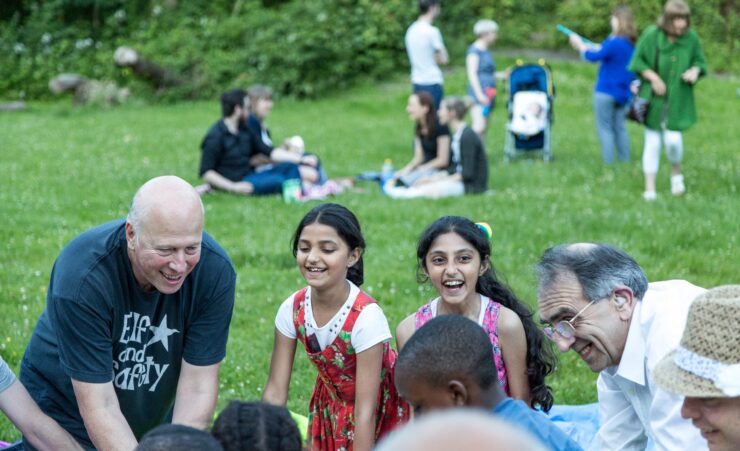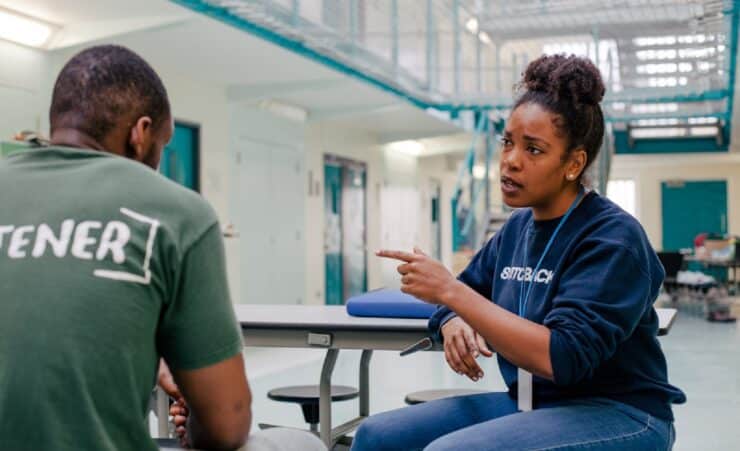
Building Community Leadership
Values and approaches that underpin successful community leadership support
How can residents feel supported and empowered when participating in community leadership support? What are the enablers and obstacles to community leadership development?
Over the last three years, IVAR and Just Ideas have been exploring questions like these in our role as learning and evaluation partners for the Community Leadership Academy (CLA). This blog draws on Building Community Leadership, our learning report co-written with Just Ideas.
Local Trust’s Community Leadership Academy (CLA) provides support for residents leading change in their local area. The programme uses one-to-one coaching, group learning workshops, masterclasses, informal peer support and networking to build participants’ skills and knowledge in leading positive change as volunteers in their communities. Created by Local Trust, the CLA was developed by Koreo, the Young Foundation and Northern Soul.
The CLA programme started by supported Big Local residents. Big Local is a resident-led funding programme from Local Trust established to create long-lasting change in 150 areas in England. Participation for the CLA was later expanded to residents within the networks of partner organisations.
Community leadership, drawing on the distributed leadership model, can be thought of as:
Leadership … shared across those who have relevant skills and expertise and can shift around according to context and circumstance. United by a common purpose or outcome, a community exercising distributed leadership will see many different people – whether out in front, out back, introverted or extroverted – influence and lead change in multiple different ways.” (Goulden, 2022)
What did we learn about community leadership support?
The CLA programme has demonstrated that tailored and focused support can improve people’s confidence and understanding of the role they can play within their community, leading them to create and take up opportunities for positive local change.
“I wouldn’t necessarily have gone to a council meeting or to meet my MP – but CLA has been about seeing your voice as important – and understanding the processes of things, how to pull strings … who you need to point things out to.” (CLA participant)
The programme helped participants to name, recognise and overcome ‘imposter syndrome’, which most participants identified as a main blocker, as our Leading the Way blog explores.
Our new report, Building Community Leadership, explores this and wider learning from the CLA. While it is written for Local Trust and its delivery partners, the learning may be useful for those interested in funding or delivering community leadership initiatives as to what it takes to deliver this kind of support successfully.
“The leadership delivery partners were all so supportive. I took a chance and it really helped me to understand I can lead, [and that] I am a leader, not an imposter. I can make a valid contribution.” (CLA participant)
Three key values behind the CLA approach
Three values underpinned the success of the CLA programme:
- Flexibility and adaptation, alongside a willingness to respond to participants’ needs and feedback.
- Reflective. Building spaces for participants to explore their practice, new ways of working and self-care.
- Relational. People and relationships are at the centre of the CLA programme.
These have helped to provide a supportive and encouraging community for the diverse range of people who are part of Big Local, and allowed the programme to respond to the Covid-19 pandemic (e.g. shifting from in-person to remote).
We saw the values operationalised through:
- National, hyperlocal and individual focus. The CLA successfully operated at multiple levels, applying core elements of community development (such as building trust, inclusivity and relational working) to support individual leadership.
- A different approach to leadership. The programme steered away from traditional ideas of leadership (e.g. the ‘heroic’, charismatic individual who holds a formal position of power) by engaging with individuals who did not see themselves as leaders and supporting them to distribute leadership in their partnerships and communities.
- The power of lived experience. Participants were valued as experts by experience. The programme boosted their confidence to make the case for their community, learn how to ensure decision-makers heard their viewpoint and have a positive influence on local activity.
- Enabling and embedding a learning environment. A key part of enabling learning was creating reflective spaces to share experiences and embedding opportunities to apply what was taught in sessions and put learning into practice.
Facing challenges and accepting support
The programme has faced various challenges, such as participants balancing engagement in the programme with life and work commitments, supporting participants to integrate and act on learning in wider contexts, and delivering effective leadership development with groups.
The CLA continues to consider and respond to these challenges, demonstrating the importance of having an external perspective from a learning partner to reflect real-time insights.
Leadership is a core part of resident-led change
The values outlined above are central to the success of the CLA. We would encourage other community leadership initiatives to take some time to regularly reflect on and explore their own values, to help highlight what’s working and make adaptations and improvements as required.
You can learn more from the CLA in Building Community Leadership, where we share personal stories about the impact it had on individuals, their Big Local partnerships and the wider community around them. Ultimately, we found that leadership is a core part of any resident-led change – and identified the most effective ways of encouraging this.


